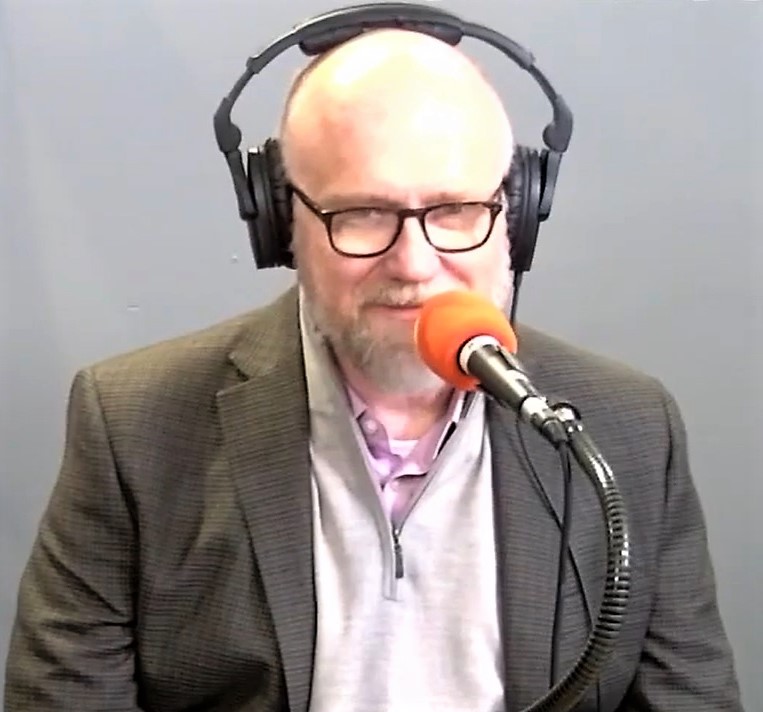
The assassination of Charlie Kirk, the 31-year-old conservative activist and founder of Turning Point USA, on September 10 at Utah Valley University, sent shockwaves across the nation, instantly igniting a deeply polarized debate. As graphic footage of the shooting circulated widely, the tragic event rapidly became a flashpoint for an already volatile political landscape, exposing profound divisions in how Americans perceive political violence and accountability.
In the immediate hours and days following Kirk’s death, figures from across the political spectrum offered varied and often conflicting reactions. While many expressed profound grief and condemned the violence, others used the tragedy to reinforce existing grievances, assign blame, or even escalate calls for retribution. This complex tapestry of responses underscored the precarious state of American political discourse, where even a shared moment of national sorrow struggled to transcend partisan lines.
This in-depth examination delves into the initial reactions and the factual contours of this tragic event, providing a comprehensive overview of how key individuals and groups responded. From the poignant expressions of loss to the sharp condemnations of perceived hypocrisy and the early calls for both unity and ideological warfare, Kirk’s assassination has laid bare the raw nerves of a deeply divided society.
1. **The Assassination of Charlie Kirk: A Tragic Event**
Charlie Kirk, a prominent conservative activist, commentator, and co-founder of Turning Point USA, was fatally shot on September 10 during a speaking engagement at Utah Valley University in Orem. The 31-year-old was actively engaged in a debate with students when he was struck in the neck, an injury described as unsurvivable by combat medics, leading to his tragic death. This senseless act of violence silenced a significant voice in the conservative movement, cutting short a life dedicated to fostering political discourse on college campuses.
Kirk’s professional journey began at the young age of 18 when he established Turning Point USA under the presidency of Barack Obama. He meticulously built this organization into a formidable political force, notably assisting President Trump in his 2024 electoral victory. Through Turning Point USA, Kirk championed conservative views on high school and college campuses, often under a tent emblazoned with the inviting words, “Prove me wrong,” symbolizing his commitment to robust debate and intellectual challenge.
Beyond his public persona as a conservative influencer, Kirk was described as a devoted Christian, a husband, and a father of two young children. He was one of President Donald Trump’s most ardent supporters and allies, particularly endearing himself to Gen Z conservatives. His advocacy extended to long-standing Christian conservative causes, including large families, regular church attendance, and a prohibition on abortion. He also held controversial views, believing the Civil Rights Act of 1964 led to discrimination against white Americans and frequently critiquing Martin Luther King, Jr.
The search for the perpetrator and motive has been complex and evolving. Initially, a 22-year-old Utah native named Tyler Robinson was arrested for the killing, but FBI Director Kash Patel later announced that a person of interest, after being taken into custody, had “been released after an interrogation by law enforcement.” Subsequently, authorities confirmed that the killer remained unidentified and at large, with no confirmed motive. This fluid situation added to the confusion and speculation surrounding the tragic event, leaving many questions unanswered even as graphic video of the murder circulated widely.
Read more about: Marjorie Taylor Greene’s Call for a ‘National Divorce’: An In-Depth Look at the Proposal, Its Roots, and Reactions in a Divided America

2. **Jodi Picoult’s Controversial Condemnation**
In the wake of Charlie Kirk’s murder, millionaire novelist Jodi Picoult, known for “My Sister’s Keeper,” ignited significant controversy with an angry rant against conservatives mourning Kirk. Appearing on TikTok, Picoult, 59, denounced those grieving the slain commentator, alleging that he “made a living out of preaching hate.” Her comments quickly sparked calls for a boycott of her work across conservative social media platforms, leading her to set her TikTok account to private.
Picoult’s impassioned statement, delivered with wet hair as if fresh from the shower, articulated a sharp critique of what she perceived as hypocrisy among Kirk’s mourners. She asserted, “An undeserved violent death does not negate the terrible pain that he inflicted on others.” The author added, “I’m not buying into the hypocrisy,” directly challenging the sincerity of those who claimed to mourn the loss of life while, in her view, supporting policies that caused suffering.
She further intensified her criticism by stating, “You won’t trick me into believing it’s just about respect for life when your side has cheered families being ripped apart, when your side has proudly supported Alligator Alcatraz merch,” referencing an immigration detention center opened by the Trump administration. This detailed accusation aimed to highlight a perceived inconsistency in the conservative stance on human life and dignity, particularly in the context of immigration.
Picoult also preemptively addressed what she saw as an immediate conservative impulse to assign blame, stating they “immediately jumped to blame trans people and target HBCUs, even though – shocker! – the shooter was a cis, white man from a Trump-supporting family who was raised to love guns.” She concluded her message by condemning all gun violence but accused the right of caring “about violence when it happens to them,” adding, “Miss me with the fake self-righteousness.” Her statements, though intended to expose hypocrisy, were met with widespread conservative outrage, leading to calls for her cancellation and criticisms labeling her “Totally unhinged” and a “derangement of thought.”

3. **Stephen King’s Retraction and Apology**
Fellow best-selling author Stephen King also found himself embroiled in controversy surrounding Charlie Kirk’s death, though his narrative took a different turn. King initially made critical comments and false claims about Kirk, wrongfully stating that Kirk had “advocated for stoning gays to death.” This assertion provoked immediate and strong backlash from conservative figures, including Republican Senator Ted Cruz of Texas, who tweeted back in outrage, “You are a horrible, evil, twisted liar. No, he did not.”
In a notable act of public accountability, King quickly apologized for his erroneous statement. He responded to the backlash, directly addressing Senator Cruz with, “The horrible, evil, twisted liar apologizes.” King explained his error, stating, “This is what I get for reading something on Twitter w/o fact-checking. Won’t happen again.” His swift retraction and admission of fault distinguished his reaction from some other public figures during this tense period.
Following his apology, King shared and concurred with a post by former President Barack Obama concerning the shooting. Obama’s statement emphasized that “This kind of despicable violence has no place in our democracy,” to which King simply commented, “All correct.” This alignment with a broader condemnation of political violence demonstrated King’s general stance against such acts, despite his earlier factual misstep regarding Kirk’s specific views.
Further reflecting on the nature of the assassination, King drew historical parallels, likening Kirk’s killer to the murderers convicted of the assassinations of former President John F. Kennedy and civil rights activist Martin Luther King Jr. He characterized all three killers as “cowards who shot from ambush.” This comparison, though poignant, further highlighted the gravity of political assassinations and their profound impact on societal discourse, positioning Kirk’s death within a tragic lineage of American political violence.

4. **Conservative Figures’ Immediate Grief and Rage**
As news of Charlie Kirk’s death broke, conservative influencers and media personalities reacted with a potent blend of grief and profound rage. The emotional toll was immediately apparent, with conservative journalist Megyn Kelly choking back tears during an interview with Glenn Beck, who himself began weeping upon hearing the confirmation of Kirk’s death, noting, “There’s no way he survived that” after the bullet struck him in the neck.
Across social media, conservative figures erupted, many mourning Kirk as a martyr for his beliefs. Pro-Trump influencer Benny Johnson wrote on X, “The lord God has called his servant Charlie Kirk home. Charlie is now a martyr.” This narrative quickly framed Kirk’s death not just as a tragedy but as a sacrifice in a broader ideological conflict, galvanizing his supporters and amplifying sentiments of victimhood within the conservative movement.
Alongside expressions of sorrow, many influencers quickly moved to blame the left and Democrats, suggesting that their rhetoric had, at the very least, provoked the unknown shooter. Some went further, speculating without evidence that “malevolent forces had orchestrated the killing,” including far-fetched conspiracy theories about foreign governments. Podcaster Ben Shapiro expressed profound sadness, stating, “All of us will miss him, and I can’t imagine the pain of his beautiful young family, and we must all pray for them,” before issuing a call to action: “We must fight for a better America – an America where good people can speak truth and debate passionately without fear of a bullet.”
Nicole Hemmer, a political historian at Vanderbilt University, observed that for many influencers, the news was “deeply emotional” due to Kirk’s extensive connections within conservative media. Glenn Beck, acknowledging the profound impact on ordinary conservatives, asserted that Kirk’s death would spur action, declaring, “There were a thousand Charlie Kirks created yesterday. The tyrant dies and his rule is over. The martyr dies and his rule begins.” This sentiment underscored a belief that the assassination, rather than silencing conservative voices, would instead catalyze a renewed and intensified commitment to their cause.
Read more about: Forrest Frank’s Bold Stand: How a Viral Singer Embraced Faith and Lost 30,000 Followers
5. **President Trump’s Blame on “Radical Left Political Violence”**
President Donald Trump quickly weighed in on Charlie Kirk’s assassination, releasing a video statement that began with praise for Kirk but swiftly pivoted to a strong condemnation of what he termed “radical left political violence.” In his address, Trump eulogized Kirk, acknowledging his significant role in the conservative movement and his contributions to the 2024 election. However, he then linked the assassination directly to the rhetoric of his political opponents, escalating the already tense national conversation.
Trump stated, “For years those on the radical left have compared wonderful Americans like Charlie to Nazis and the world’s worst mass murders and criminals.” This claim drew a direct line from perceived left-wing comparisons to the tragic act of violence, implying a causal relationship. He then asserted, “This kind of rhetoric is directly responsible for the terrorism that we’re seeing in our country today,” thereby framing Kirk’s murder as a direct consequence of a broader ideological climate fostered by his political adversaries.
The President reiterated this stance in a subsequent Oval Office address, again blaming the shooting on “radical left political violence.” This narrative, consistent with previous responses to acts of political violence, served to politicize the assassination and mobilize his base around the idea that conservatives are under attack from a radicalized opposition. His comments were not merely an expression of grief but a strategic deployment of rhetoric intended to assign blame and rally support.
This approach mirrored previous instances where Trump and his allies had, without sufficient evidence, blamed Democrats following attempted assassinations against himself. Experts in threat assessment and law enforcement have warned that such claims, which falsely attribute violence to political opponents, can contribute to further political unrest and potentially inspire more acts of violence, deepening the cycle of animosity and division within the political sphere. The President’s forceful declaration further entrenched the partisan lines drawn around Kirk’s tragic death.

6. **Senator Thom Tillis’s Plea for Restraint**
Amidst the widespread grief and escalating calls for retribution, Republican Senator Thom Tillis of North Carolina offered a distinct voice of caution, issuing a sharp rebuke to his colleagues and conservative commentators advocating for violence. His intervention stood in stark contrast to the more incendiary rhetoric emerging from other quarters of the Republican Party, highlighting a fissure within conservative responses to Kirk’s assassination.
Senator Tillis expressed deep disgust at what he perceived as opportunistic behavior, stating, “What I was really disgusted by yesterday is a couple of talking heads that sees this as an opportunity to say we’re at war so that they could get some of our conservative followers lathered up over this.” He characterized such appeals as “a cheap, disgusting, awful way to pretend like you’re a leader of a conservative movement,” specifically calling out “two in particular that I found particularly disgusting,” though he did not name them.
This call for restraint was consistent with Tillis’s initial reaction upon hearing of Kirk’s death, when he posted on X, “Political violence has no place in our society.” His message directly challenged the narrative of immediate retaliation and war that was being propagated by figures like Fox News host Jesse Watters, who told viewers, “They are at war with us, whether we want to accept it or not. And what are we going to do about it?” Tillis’s stance implicitly criticized those who sought to weaponize the tragedy for political gain.
The senator’s condemnation of his colleagues’ rhetoric was not universally well-received within the conservative movement, with reports indicating that “MAGA recoiled online at Tillis’s condemnation.” However, his statements resonated with others who agreed that a message of restraint, particularly regarding political violence, should have originated from higher echelons of the Republican Party, perhaps even from President Trump himself. Tillis’s appeal served as a crucial counterpoint to the more aggressive and divisive pronouncements that dominated much of the immediate aftermath of Kirk’s assassination.

7. **Elon Musk and Shaun Maguire’s Allegations of “Left-Wing Murder”**
As the nation reeled from Charlie Kirk’s murder, with authorities lacking confirmed motive, prominent voices quickly moved to assign blame, significantly ratcheting up political rhetoric. Billionaire Elon Musk, with his vast platform, reposted a statement from venture capitalist Shaun Maguire that declared, “The Left is the party of murder,” directly linking the tragic event to a broad political ideology. This explosive accusation, made without factual basis regarding the shooter’s identity, instantly amplified partisan division and solidified a narrative among many conservatives.
Maguire’s initial post listed Kirk’s death alongside other violent incidents, concluding that “The danger was actually on the Left.” Shannon McGregor, a media expert, observed the inherent human tendency to seek easy answers, noting, “Without more information, many on the political right naturally look at those they perceive as their political enemies.” Despite swift condemnations from Democratic politicians like Gavin Newsom, these statements did little to temper the rising anger. Sociologist Katie Gaddini noted the enduring power of such narratives, stating, “It has already been cast as an attack from the left, and I think it’s going to be hard to shift that narrative.”
The sentiment quickly escalated. Actor James Woods declared, “It’s not gun violence, it’s Democrat violence,” while podcaster Joey Mannarino asserted, “The Democrat Party must be classified as a domestic terror organization and their members & leaders treated accordingly.” These pronouncements signaled a dangerous escalation of rhetoric, transforming a tragic individual act into a generalized accusation against an entire political party and its supporters.

8. **Laura Loomer’s Demands for State Retribution**
Conservative firebrand Laura Loomer significantly contributed to the escalating calls for retribution. She took to social media with a barrage of posts, emphatically declaring, “THIS IS WAR,” and urging the Trump administration to “shut down, defund, & prosecute every single Leftist organization,” characterizing “The Left” as “a national security threat.” Her rhetoric, delivered to her 1.7 million followers, suggested a profound shift from political debate to an existential battle, demanding state power be deployed against perceived political enemies.
Loomer’s statements intensified, even venturing into unverified claims about the nature of Kirk’s assassination. She asserted, “They sent a trained sniper to assassinate Charlie Kirk while he was sitting next to a table of hats that said 47,” without specifying who “they” were or providing any evidence. This type of conspiratorial framing further fueled outrage and distrust, suggesting a coordinated, malevolent effort behind the attack. She unequivocally stated, “More people will be murdered if the Left isn’t crushed with the power of the state,” advocating for an authoritarian response.
The stark contrast between Loomer’s aggressive demands and more measured condemnations from mainstream Democratic figures highlighted the widening gulf in American political discourse. While Democrats generally called for a rejection of all political violence, Loomer and others on the far-right intensified calls for a decisive, even destructive, confrontation, signaling a profound erosion of norms around political engagement.

9. **Sean Davis and Christian Nationalist Calls for “Extermination”**
Sean Davis, CEO and co-founder of The Federalist, amplified calls for severe action against the perceived political opposition. Davis used his platform to post incendiary remarks, including an explicit demand for “the extermination of the entire anarcho-terrorist network that has been terrorizing Christians in this nation unabated for more than a decade.” He further declared, “When Democrats lose elections they couldn’t steal, they murder the people they were unable to defeat,” directly accusing the party of orchestrating political assassinations without evidence.
The call for the destruction of the Democratic Party was echoed by Christian nationalist figures like Joel Webbon and William Wolfe. Webbon, addressing former President Trump, asserted, “You are commanded by Scripture to be a TERROR to those who do evil. Give them hell,” framing political action as a divine mandate. Wolfe was even more direct, posting a video of Kirk’s shooting with the comment: “The. Left. Must. Be. Destroyed,” and further stating the goal for Republicans should be “to destroy the Democrat Party entirely and salt the earth underneath it.”
This radicalized rhetoric found a voice in conservative activist Christopher Rufo, who advocated for swift governmental action. Rufo invoked a historical precedent, calling for authorities, “within the confines of the law, to infiltrate, disrupt, arrest, and incarcerate all of those who are responsible for this chaos.” These collective calls, whether for “extermination” or “incarceration” of political opponents, painted a chilling picture of a segment of the right embracing a strategy of aggressive state-backed suppression.

10. **The Incendiary Calls for “Civil War”**
Perhaps the most alarming escalation of rhetoric came with explicit calls for “civil war.” British American masculinity influencer Andrew Tate encapsulated this sentiment starkly, posting simply: “Civil war.” This terse declaration represented a culmination of mounting anger and perceived irreconcilable differences, suggesting the nation had passed the point of no return for peaceful resolution. Anti-abortion activist Kristan Hawkins similarly invoked the specter of civil war, linking Kirk’s killing to the struggle over life issues, stating, “This is a new civil war. One that we must fight with love to restore a Culture of Life.”
The creator of the far-right Libs of TikTok account, Chaya Raichik, joined this chorus with her own declaration on X: “THIS IS WAR.” She actively propagated posts meant to highlight perceived left-wing celebrations of Kirk’s killing, effectively identifying and “othering” individuals as enemies in this declared conflict. Darryl Cooper, a far-right activist, provided a theoretical justification, stating that “Fascism is just the word used by freaks and degenerates when normal people realize that the Left won’t stop unless it’s forced to.”
Conservative activist Ryan Fournier, a co-founder of Students for Trump, perhaps encapsulated the psychological shift among some followers with his declaration: “Congratulations. You have now made a radical out of me. You f**kers deserve it.” This raw expression of radicalization underscored how the assassination served as a “turning point” for individuals, pushing them towards more extreme ideological positions and potentially violent solutions.
Read more about: Unmasking the Pedestal: 15 Revered Historical Figures Whose Dark Sides Will Shock You

11. **Rick Wilson’s Counter-Narrative: Condemning Weaponized Grief**
Amidst the overwhelming tide of accusations and calls for retribution, former Republican strategist Rick Wilson offered a crucial counter-narrative, explicitly calling out President Trump and his MAGA allies for “dishonestly politicizing the assassination of Charlie Kirk.” Writing on his “Against All Enemies” Substack, Wilson condemned both the celebration of Kirk’s murder on the left and the weaponization of his death on the right, stressing that if “violence becomes the coin of our politics, America is finished.” This perspective sought to transcend partisan blame and refocus on fundamental principles of civility and law.
Wilson asserted that “Every decent person should condemn this assassination without hesitation, without hedging, without a single ‘but,'” emphasizing the need for universal moral clarity. However, he immediately followed this by declaring that “we cannot allow this terrible crime to be weaponized into a lie.” He directly challenged the “MAGA chorus and the Trump White House” for “turning grief into grievance, mourning into manipulation,” and for promoting the “grotesque lie” that all political violence originates from the left, meticulously cataloging recent acts of violence by right-wing individuals to underscore the hypocrisy.
He further elaborated on the MAGA movement’s tactical use of “memory-holing” these right-wing acts, pretending they were “lone wolves,” while simultaneously demanding silence from opponents and government punishment for opposition speech—but “only for Trump’s opponents.” Wilson critically observed that “many of these wolves drank from the same poisoned well, fed by the same voices,” drawing a direct link between rhetorical incitement and real-world violence. He argued that Trump himself “fans the flames of violence over and over,” and his allies “justify and encourage violence against their political opponents,” calling this “a political strategy” where “Rage is the product, and violence is the natural consequence.”
12. **The Broader Psychological Impact and the Normalization of Violence**
Beyond the immediate political fallout, Kirk’s assassination, particularly the widely circulated graphic video, unleashed a profound psychological impact on the nation, forcing many to confront the raw, brutal reality of political violence. “Ubiquitous doomscrolling now grants others the same awful privilege,” observed one commentator, highlighting how the high-definition footage stripped away the virtuality that often cushions modern engagement with violence. This visceral exposure made it difficult for some to maintain the illusion that violence is merely theoretical or that its victims are abstract figures.
The commentator further reflected on the disorienting effect of such horrific imagery, noting that “a viewer can be psychologically transformed just by watching, and be left staggering around for minutes or days afterward, wondering whether the world is a place different from what he thought.” These “periods of disorientation” are both “useful and dangerous,” as individuals become “susceptible to political shifts.” Political historian Nicole Hemmer’s warning that “Violence begets violence” resonated deeply, underscoring the fear that the circulation of such imagery “expands people’s capacity for violent revenge.” She also distinguished between those advocating violence and those who experienced its real consequences, observing that “those most enthusiastic about political violence lacked experience in places where rioting was common.”
The question of whether America is “returning to the 1960s” and a “norm of political assassinations,” drawing parallels between Kirk, Martin Luther King Jr., and the Kennedy brothers, weighed heavily on many minds. While acknowledging the historical rarity of political violence in the U.S., the article pointed out that “it is difficult to appreciate a run of peace and good fortune, if only because peace itself lulls us into forgetting that the run of good fortune is happening at all.” The killing of Kirk served as a stark, unwelcome reminder that this fragile peace is not guaranteed.
Read more about: Robert Jay Lifton: A Psychiatrist’s Profound Journey Into Humanity’s Extreme Situations and the Quest for Understanding Evil, Dead at 99
Ultimately, the tragedy of Charlie Kirk’s assassination served as a grim testament to the perilous state of American political discourse. It laid bare the raw nerves of a deeply divided society, revealing how quickly grief can be twisted into grievance, and how the absence of facts can be filled with partisan narratives and calls for retribution. As the nation grapples with the enduring questions of motive and accountability, the event has undeniably forced a difficult, collective reckoning with the normalization of extreme rhetoric and the psychological toll of unbridled animosity, urging a reflection on the universal lessons of humanity and restraint that, in moments of such profound sorrow, become more critical than ever before.






